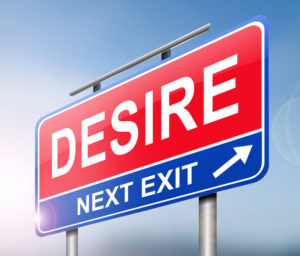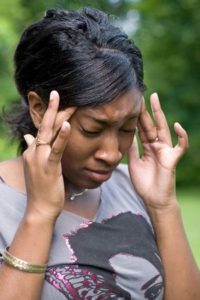
Inevitably, when a woman comes in complaining about having a low libido, I get curious about the power dynamics in the her relationship. What dance is she and her partner (or partners) engaged in? What is her relationship to power? Does she have a sense of personal authority, both in her relationship and in the rest of her life?
I look at her ability to navigate her personal boundaries, her levels of overwork and overwhelm, and the distribution of both physical and emotional labor in her household. I also look at the qualities of mutuality and intimacy between her and her partner. Often, by the time we’ve examined those different facets of her experience, it’s become quite clear why she’s not feeling turned on.
Historically, the problem of low sexual desire has been treated as a medical issue. For women, this view has produced many kinds behavioral and medical interventions, including most recently, a search for the holy grail, a female version of Viagra.
Pop psychology has joined the bandwagon with hundreds of books trying to crack the code of female desire. Right now, I’m looking at a stack of about 20 books written for women about reclaiming their sexual desire, and most of them are about tools and techniques. Breathe this way. Position yourself that way. Vibrate this. Lube that.
Now, don’t get me wrong. I LOVE techniques. In fact, I support women (and people more generally) in finding healthy, satisfying ways to discover their turn on, and create sexual lives that are really nourishing to them.
Yet these approaches often leave women wanting. Why? Why it is so hard for women who have lost interest in sex to recover their desire? Why can’t medical scientists come up with a consistently effective biochemical solution for low libido in women?
I think (and I am not alone in this) that, for at least some women, it has to do with power.
 I often say to a woman who is struggling with sexual desire, and who also has poor boundaries, “If you don’t figure out how to say no in your life, your body will begin to say no for you.” And shutting down sexually is one of the first and easiest ways for the body to begin saying no.
I often say to a woman who is struggling with sexual desire, and who also has poor boundaries, “If you don’t figure out how to say no in your life, your body will begin to say no for you.” And shutting down sexually is one of the first and easiest ways for the body to begin saying no.
When you are overwhelmed, tired, and under nourished, it can be very difficult to find your turn on. If you feel neglected or disrespected, it can be very difficult to find your turn on. If you feel like sex is yet another obligation, something you do to satisfy your partner, regardless of how YOU feel, it can be very hard to find your turn on.
Yet, women go searching for tools, a magic pill, that will help them find their turn on without ever addressing these fundamental issues.
Well… I can connect you with doctors, naturopaths, homeopaths and herbalists who will have recommendations for boosting your libido. I can even recommend books, videos and exercises. There are very effective somatic practices that can help you. But if you don’t deal with your issues with your own power, all of the self-help strategies and remedies in the world will not get you where you want to go.
On the other hand, when you manage to find your turn on, then you may have another problem on your hands. A sexually liberated woman is likely to want to experience liberation in the rest of her life.
As the poet and activist, Audre Lorde, reminds us,< “In touch with the erotic, I become less willing to accept powerlessness, or those other supplied states of being which are not native to me, such as resignation, despair, self-effacement, depression, self-denial.”
When she begins to feel her turn on, and connect with her power, she may find that she doesn’t want to have sex, but not because she’s not turned on. She may be connected to desire, but she she may also be connected to what has stood in the way of her accessing her desire for so long.
Maybe she’s been working too hard. Maybe she’s shouldering too much of the burden of maintaining the household. Maybe she and her partner are very good at sharing responsibility, but they don’t have enough back up or support, so they’re BOTH burned out.
Maybe she’s learned that her pleasure doesn’t matter. Or maybe she’s never learned what really brings her pleasure. Maybe she still harbors the secret fear that if she really enjoys sex, then it means she’s a slut (yes, that tired ol’ virgin/whore split persists).
Maybe she loves her partner to pieces, and really wants to feel desire for him/her/them, but it’s a total mystery to her how to generate that desire out of the ether. It’s so rare for her to feel desire spontaneously, that she starts worrying that something is truly wrong with her.
She may have felt the need to numb herself just to get through her day. As she opens to the possibility of greater sexual freedom, she may also begin to feel the constraint of her current cultural, social and familial containers. It’s no wonder that when some women begin to wake up, the metaphorical shit hits the fan!
So beginning to examine your relationship with power is one piece of the puzzle, and learning as much as you can about women’s sexuality from a woman-centered perspective is another. There are a myriad of ways that desire can function in women’s bodies/minds. When we venture deeper into understanding of women’s sexuality (or sexualities more accurately), some things start to click into place about why there isn’t a one size fits all answer for the conundrum of low libido in women. Then new possibilities can emerge for how to awaken to greater desire.
In my next post, I’ll be talking more about what I mean by woman-centered sexuality. But for now, tell me, in the comments below… where do you feel empowered sexually? Where do you find yourself selling yourself short? How do you/would you know when you are truly sexually free?




